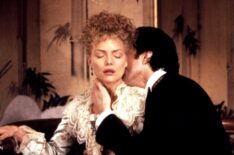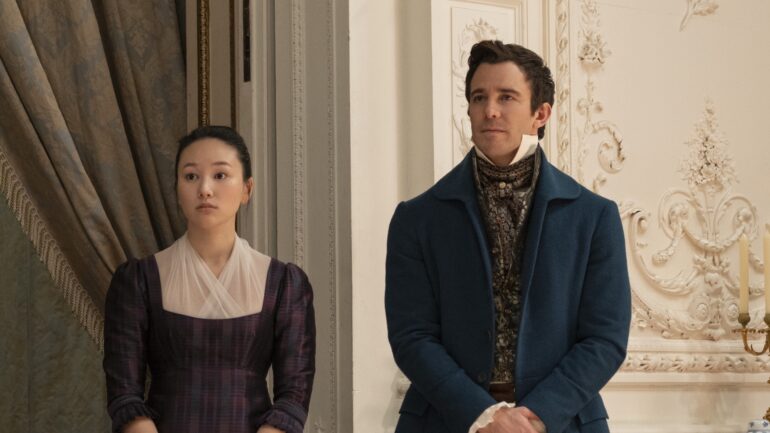Romance History
Will Bertha & George Get Divorced on ‘The Gilded Age’? What History Tells Us
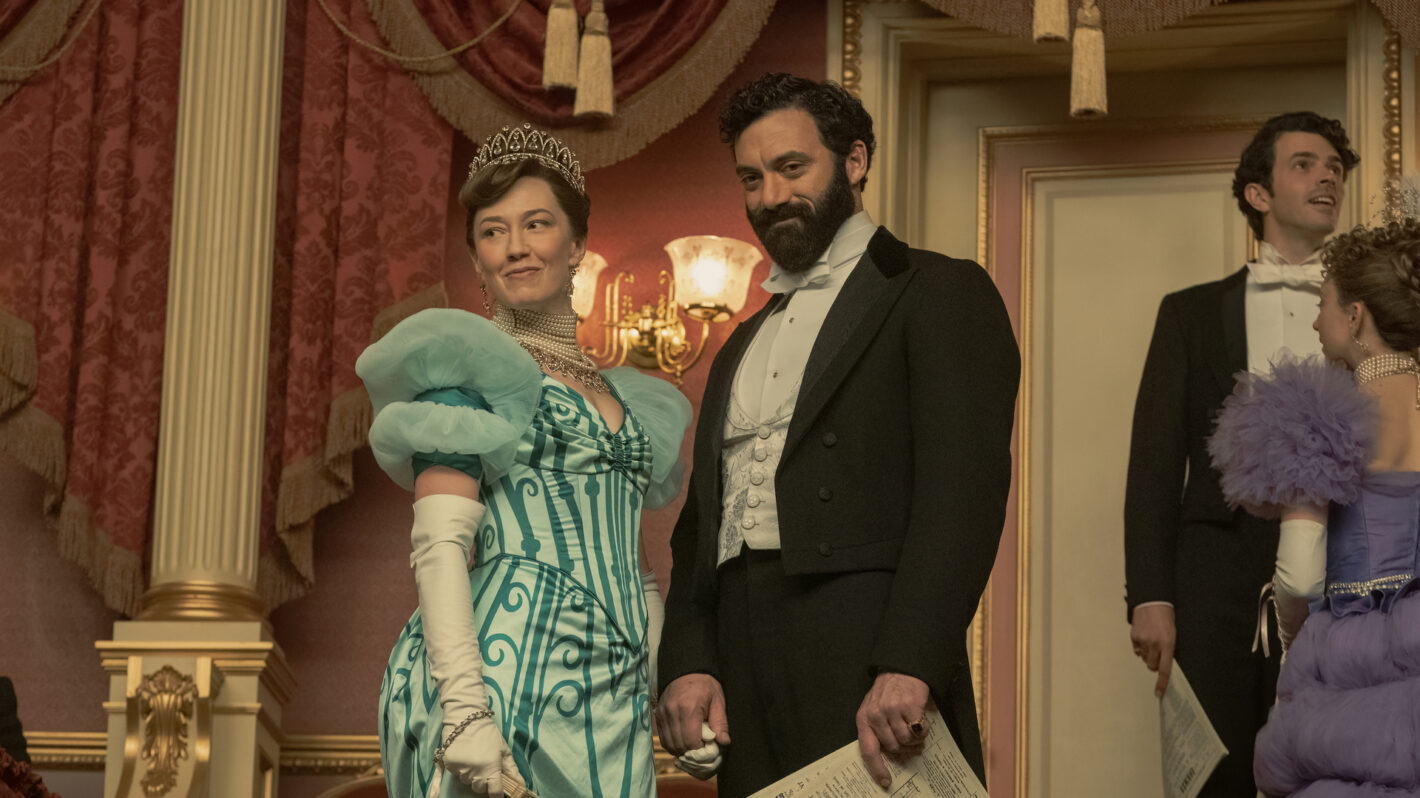
In the upper-crust world of The Gilded Age, rock-solid couples are among the most powerful weapons.
HBO’s high-fashion, high-drama series luxuriates in what it meant to be part of the elite class in 1880s New York City. But in the Season 3 trailer, announcing the show’s return on June 22, more than just reputation was put on the line.
The show’s signature couple, Bertha (Carrie Coon) and George Russell (Morgan Spector), are the epitome of the progressive new money movement that threatens to disrupt the entire old-money-rules-all establishment. But Bertha’s insatiable appetite for upending that status quo and reshaping it in her own image left the couple on shaky ground in Season 2.
Desperate to one-up her rivals in the fight to open the Metropolitan Opera House, Bertha lured the Duke of Buckingham (Ben Lamb) to her cause and, to seal the deal, promises her daughter Gladys’ (Taissa Farmiga) hand in marriage to the royal—without her George or her daughter’s knowledge. (And if the first-look images for Season 3 are any indication, it looks like these two might make it to the altar.)
This betrayal gets Bertha the cultural win, praised by her community from the center box at the opera house, reigning over her subjects at the pinnacle of her power. But George, a more kind-hearted man intent on his daughter marrying for love, is not likely to approve of Bertha’s actions in Season 3. The trailer hints at more than one argument between the couple, but could things get much worse?
Will Bertha and George buck tradition and divorce over her betrayal of his wishes? Like most of The Gilded Age, the Russells are inspired by a real-life couple. So what can history tell us about the future of the Russell household?
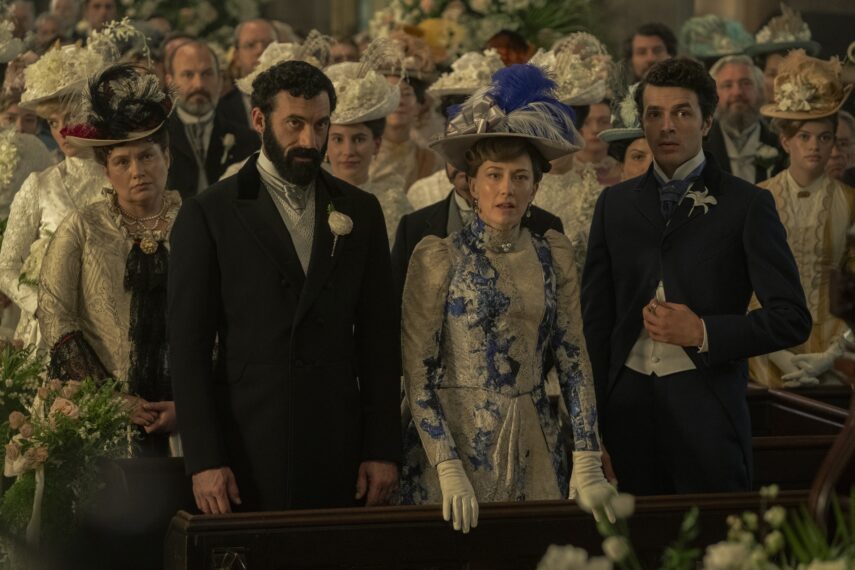
Karolina Wojtasik / HBO
Who are the Russells based on?
Bertha Russell is loosely based on Alva Erskine Smith, who was known during the Gilded Age as Alva Vanderbilt. This is due to her first marriage to William Kissam Vanderbilt, the heir to the Vanderbilt fortune and the manager of the dynasty’s railroad enterprise.
The couple were newcomers to the New York scene when they arrived in the 1880s and made a splash when they built a massive, city block-sized French Renaissance-style chateau on Fifth Avenue—very similar to the one Bertha and George move into at the start of The Gilded Age series.
The Vanderbilts had three children, the eldest of which was their daughter, Consuelo (born in 1877). Stop us if this sounds familiar, but Alva reportedly forced her daughter to marry Charles Spencer-Churchill, 9th Duke of Marlborough, intertwining the already powerful Vanderbilts with the royals in England. Sound like any fictional characters you know?
Just like the Russells, the Vanderbilts—mainly Alva—announced themselves to society with a grand ball at their new Fifth Avenue mansion in 1883. Eager to be accepted by the old-money families that ran the town, Alva invited guests that could help further her admittance into society. But one put up a fight: Mary Astor, the grand dame of New York society, whose daughter was excluded from Alva’s guest list, according to tales of the time. It meant Mary had to come groveling to Alva for an invitation, as she did to Bertha in The Gilded Age. Like Bertha, Alva was also instrumental in founding the Metropolitan Opera House in 1883 after she was denied a seat at the Royal Academy of Music, yet another win over the likes of Mary.
Did the real-life Bertha and George get divorced?
While the Russells and the Vanderbilts’ stories hue pretty close to each other so far, it would be a huge step for the show to actually have the Russells part ways. For one, divorce was a major deal in the 1880s, especially for those at the top of society’s food chain. Breaking apart power couples and family fortunes showed weakness to their competitors and compromised the seemingly bottomless pits of money they used to influence their industries.
And yet, that didn’t stop Alva from divorcing William in 1895, which was said to be because of his numerous affairs. The affairs were supposedly plentiful, and Alva used this information to earn herself a sizable settlement of $10 million (nearly $300 million in today’s money). She also kept a number of their estates. But don’t forget the wealthiest people can also be the pettiest. A year after the divorce, Alva remarried in 1896 to Oliver Hazard Perry Belmont, one of William’s friends.
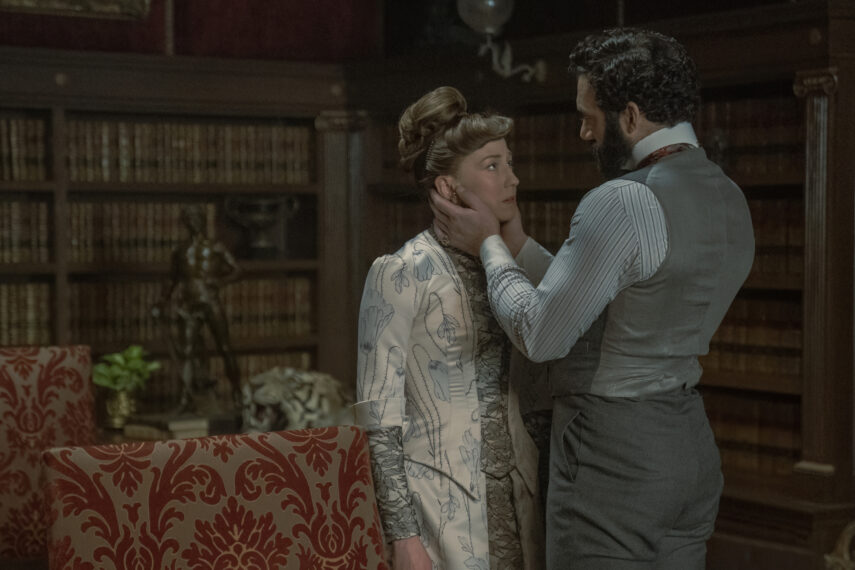
Barbara Nitke / HBO
Will Bertha and George get divorced?
For those who know The Gilded Age, Bertha and George have proven to be incredible partners in their—or really, her—pursuit of societal acceptance. He has supported her through her many, many lavish parties and dinners, courting each corner of the elite class one by one. Through it all, George has been a faithful husband, even when presented with the opportunity to stray outside his marriage with Bertha’s former maid Mrs. Turner (Kelley Curran), who he found naked in his bed in Season 1. (She found herself a rich husband in Season 2 and tried and failed to beat Bertha at her own game.)
Yet, through it all, George has remained true to his vows. Will that change under the stress of Bertha’s plan to marry off their daughter against her will? He sure does look unhappy in the Season 3 trailer, but only time will tell if her actions are unforgivable in his eyes.
That being said, if history tells us anything, it’s that the Russells look a lot like the Vanderbilts—and that doesn’t seem destined to change. But it’s unlikely that if divorce is in their future, it will happen anytime soon. Alva didn’t divorce William until 1895, and Season 2 of The Gilded Age was still in 1883. So if the show sticks to the timeline, we have a long way to go before the Russells hit rock bottom.
Do you think George and Bertha’s relationship on The Gilded Age will take a page out of real-life couple’s divorce chapter? Let us know your thoughts in the comments below.
The Gilded Age, Season 3 Premiere, June 22, 9/8c, HBO

